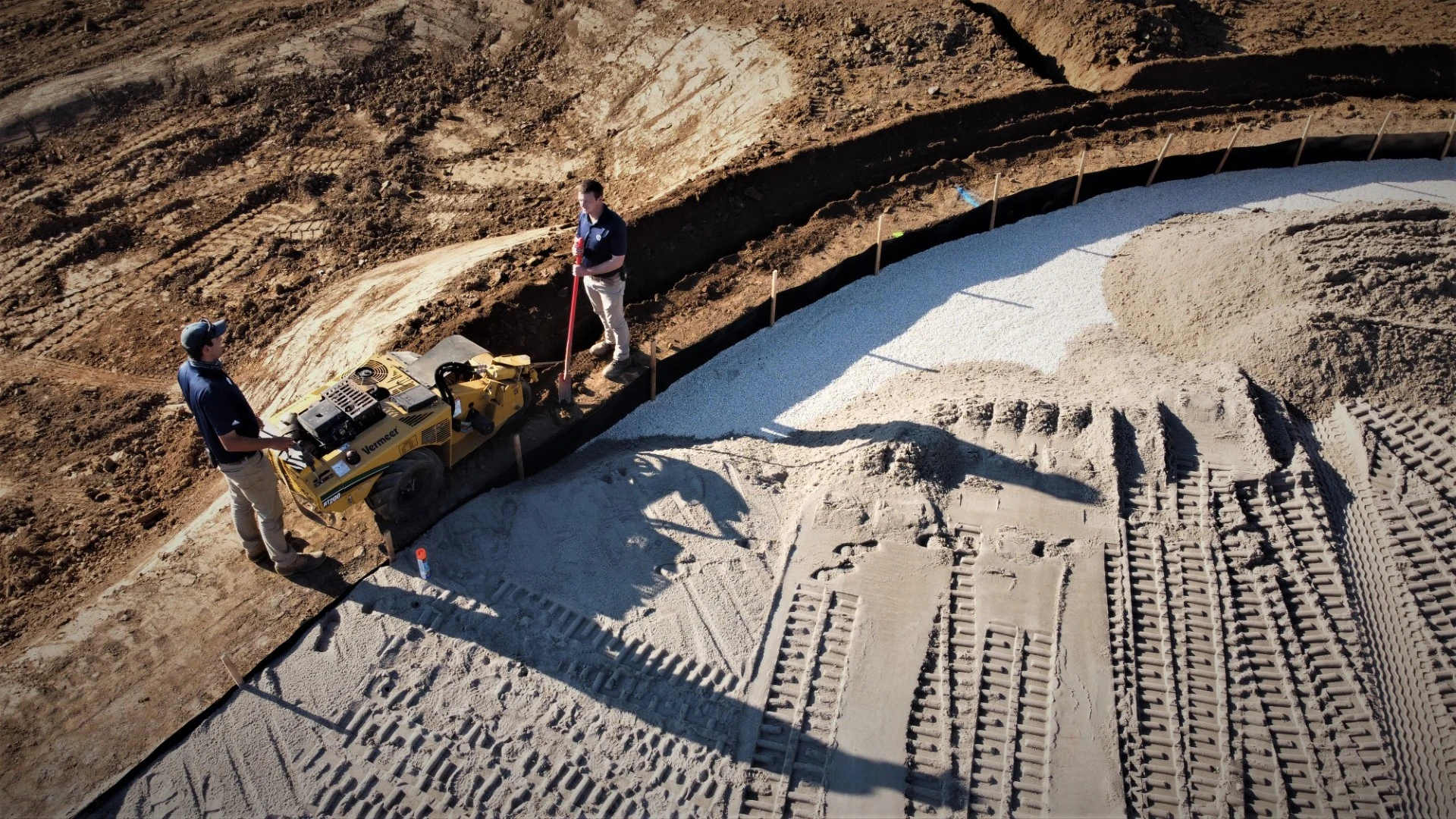You could say that golf course management companies’ reputations precede them. Whether it’s based on personal experience or hearsay, many industry members – especially golf course superintendents – have their minds made up about the third-party firms that manage entire golf operations or single departments, such as maintenance.
Regardless of their collective reputation, management companies serve a niche in the industry. With a down golf market and a recession in the U.S. economy over the last 20 months making the operating environment even more challenging, these firms are poised to grow, according to data provided to Golf Course Industry for the Top Management Companies List.
Changing perceptions
Anecdotally, many say that the negative perceptions about management companies are tales from the past and peoples’ opinions about them are improving.
"Management companies’ reputations have improved," says Terry Buchen, CGCS, president of Golf Agronomy International. "There was a lot of anxiety when they first became prominent on the scene, but it has subsided and there is a more positive attitude about them in recent years."
GCI research shows that half of superintendents’ perceptions of management companies has not changed over the last 20 years. Twenty-eight percent say their perceptions have improved; 22 percent say they’ve gotten worse (see page 22).
Steve Gano, vice president of operations for Championsgate, Fla.-based International Golf Maintenance, says good companies have been able to dispel negative perceptions through proven track records.
"We’ve made some significant headway," he says, adding that it helped that 2008 GCSAA president Dave Downing, CGCS, is an executive in a management company. Plus, high-profile superintendent and past GCSAA president Bruce Williams, former director of golf courses and grounds at Los Angeles Country Club, this month started in a development role with ValleyCrest Golf Course Maintenance.
Greg Pieschala, president of ValleyCrest Golf Course Maintenance, Calabasas, Calif., says battling stereotypes is not an issue for his company, though that wasn’t the case five years ago.
"At that time we were encountering ambivalence among superintendents, but that’s a thing of the past," he says "Today when we have an opening, we’re blessed with a lot of very high quality people who want to work with us."
Pieschala attributes ValleyCrest’s ability to overcome the perception obstacle to several internal programs, including training it conducts through the GCSAA and structuring an incentive program that rewards superintendents for actively participating in the GCSAA and achieving and maintaining certification. He also believes that ValleyCrest benefits from being a contract maintenance firm vs. a traditional management company.
"If you’re a superintendent, that makes all the difference in the world," Pieschala says.
However, GCI research shows that 50 percent of superintendents don’t differentiate between the two types of companies and, in fact, 36 percent have a more favorable perception of traditional management companies than contract maintenance companies (see page 22).
Critics of third-party operators say they don’t always do what’s best for the golf course and take away the superintendent’s autonomy. Upon the arrival of management companies they see their operating and capital improvement budgets shrink and feel pressure to deliver the same conditions with a reduced budget while answering to someone who may be off site.
"I can only really speak for KemperSports, but when superintendents become part of our system, there’s a lot of tools and support," says Steve Skinner, CEO for Northbrook, Ill.-based KemperSports. "From peers, to regional support personnel and from a technical and agronomic basis."
As for autonomy, Skinner says KemperSports believes in the brand of the individual golf course and the local staff’s expertise.
"They’re the ones who understand the desires of the local golfers and our customers," he says. "We give them the tools and support to rely on, but we don’t look to tell them how to do their jobs. They’re high qualified and well trained and they have the authority and responsibility for producing a quality product."
Gano shares a similar philosophy.
"There are a hundred ways to get the job done, and we’re all for guys doing it their own way, but when we know a job can be done more efficiently, we absolutely provide that idea to the superintendent," he says. "All of our ideas come from our superintendents and we share that idea with the rest of our clubs."
One assumption is the belief that when management or contract maintenance companies come in, the existing staff will be fired.
"Too often we hear about that negative perception, but in reality we’ve saved guys’ jobs," Gano says. "There are superintendents who haven’t been given the right tools, the budget isn’t what it needs to be and we can convince the board that they’re not providing superintendents with the right resources. The superintendent on a property knows the history. That’s a huge piece of the puzzle, so we’d be crazy to automatically get rid of the superintendent."
Unfortunately, some clubs have used management or maintenance companies to make changes at the superintendent level so they don’t appear to be the bad guys, Gano says.
"And that gives us all a black eye," he says. "If we have the sense that they’re only talking to us to change the superintendent, we won’t allow a club to use us to do that because it doesn’t translate into a long-term relationship."
KemperSports doesn’t systematically fire superintendents or other managers when it brings on a new facility.
"We look to retain and retrain as much as possible," Skinner says. "We go in and interview each of them, discuss their goals and evaluate their past."
On the flipside, management companies may provide better career ladders for superintendents than standalone courses. At a management company, there’s the potential to be promoted to a regional superintendent position and oversee several golf courses.
Jason Bonneville, superintendent at The Links at Tuscaloosa (Ala.) Golf & County Club, is employed by Lindsey Management Co., based in Fayetteville, Ark. He’s been with the company, which he says is somewhat different from a traditional management company because it only manages the courses it develops, since 1999. He’s benefitted from the opportunity to do grow-in and construction.
"It would have been much harder for me to get those opportunities on my own," he says. "I proved myself and within a year they said, ‘Hey, do you want to do construction?’ And then it ballooned from there. I’ve done three constructions and I’ve always had the opportunity to stay at the course."
Bonneville also debunks another management company myth: that they pay poorly. Though he says he can’t speak for other superintendents or other companies, he says his salary is higher than the national average, which is $78,898 for GCSAA members, according to the association’s 2009 Compensation, Benefits and Operations report.
Pay and benefits were an issue for Dan Nagy, superintendent at Jonesboro (Ark.) Country Club. He’s worked for several management and maintenance companies over the years.
"In my opinion, there are too many mid-level and upper management people in these companies, and superintendents work for pay that’s usually lower than the national averages," he says. At one point he says he was making $60,000 at a 36-hole Milwaukee course. If the facility weren’t management-company run, Nagy says, his salary would have been six figures.
"They have to support so many different entities within the organization so the benefits they offer aren’t great," Nagy says. "And I don’t agree with the way many of them treat superintendents once they get too well compensated. In my opinion, they turn their backs on them."
But Nagy asserts that management companies aren’t all bad.
"I don’t want to be anti-management company, but there are just certain ones I wouldn’t even look at," he says, adding he recommends others considering taking jobs with them do their research.
"If you’re choosing that path, make sure you’re doing it for the right reasons," he says. "It can be a good way to get started in the industry or to get your first head superintendent job. I think it benefits young people today to learn the business side of the profession and management companies are good at that – writing reports and budgeting – instead of just going out and mowing grass."
Growth prospects
Regardless of anyone’s opinion, management and contract maintenance companies are currently positioned for growth. When the market is difficult, there’s a greater potential that owners will consider working with a third-party operator.
"When there’s stress in the industry – not just the current recession, but the golf industry’s overcapacity, rounds being down, all of that – it results in stress for operators," Pieschala says. "When things are tough, a larger fraction of people will be open to doing something different. Golf is a traditional game in a traditional industry. If everybody were fat and happy, they would see no need to change."
Fat and happy, golf facilities are not.
"There’s been a lot of activity this year, and as the industry gets tougher there will be more opportunities," Skinner says.
If the companies on the Top Management Company List grow in the way they expect, the number of golf facilities working with management companies could increase by more than 21 percent (based on the projections provided by 28 of the 35 companies on the list) to more than 1,300 facilities. There are 1,099 facilities managed by the 35 traditional golf course management companies that appear on GCI’s list.
The number of facilities enlisting contract maintenance companies could grow by nearly 14 percent (based on the projections provided by four of the five companies on the list) to about 173 facilities. There are currently 152 golf facilities affiliated with the five contract maintenance firms that appear on GCI’s list.
"We’re definitely getting more calls from clubs wanting a miracle," Gano says. IGM didn’t provide specific growth projections, but Gano says the company expects to add facilities this year.
"We expect growth because we’ve had more leads in this last year than we’ve had in a long time." GCI

Explore the September 2009 Issue
Check out more from this issue and find your next story to read.
Latest from Golf Course Industry
- Standard Golf announces new product lineup for 2025
- The Salt Pond taps Troon for management
- KemperSports selected to manage Swansea Country Club
- From the publisher’s pen: Grab that guide
- Introducing our April 2025 issue
- South Carolina leaders honor golf course superintendent
- One and only
- Wild can be good






